Page Content 2018-03 eiNewsletter 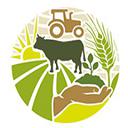 Joint Newsletter of the Networks e+i and A&FS Joint Newsletter of the Networks e+i and A&FS 
Dear members of the e+i and the A&FS network,
We are very happy to present you with this year's spring edition of our joint newsletter and wish you good reading.
Peter Beez Ueli Mauderli
Focal Point e+i Focal Point A+FS
e+i Reminder: Support by external experts
SDC e+i network members can use various experts up to one day of work (no bureaucracy, just inform the FP e+i) for thematic support such as commenting on documents like TORs, webinar on approaches and methodologies, brief literature overview on a certain topic, etc. If you need more time, ask ahead, maybe it is of general interest for the network: Support PSD / FSD Support VSD
Annick VollmarAdvisor Market Systems Development & Deputy Coordinator e+i Backstopping Mandate HELVETAS Swiss Intercooperation 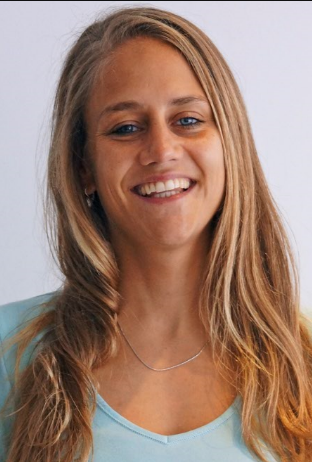 What do you love about your work, what is special about it? What do you love about your work, what is special about it?
As an Advisor on Market Systems Development I mostly support projects and clients in the countries. Therefore, I get to travel a lot and this leads to a diversity of my work in various dimensions - thematic, methodological, linguistic, and cultural. I also get to see different team compositions and clients. This is very inspiring and motivating. As backstoppers we support various processes within the e+i network. We organize knowledge sharing and networking events, facilitate e-discussions, elaborate guidance documents, and provide guidance, advice and coaching to network members. This work not only gives me an insight into the different areas and projects of SDC, but also the opportunity to contribute to the transfer of knowledge and capacity building what makes my work special and meaningful.
Which is/are your favourite instrument(s)?
There are many useful tools which support analysis, planning and implementation of (market) systems development projects. But I am in particular passionate about result chains and business model canvas. While the chain of results makes it possible to present the complexity and dependencies of a project logic in a clear and understandable way, the business model canvas helps to strategize, visualize and test a business model, be it for a micro-enterprise, a social enterprise or an organisation. Your message for your colleagues?
The daily workload sometimes makes us work in silo and forget that there might be colleagues who feel the same way. So, remember: The e+i network is there to support you and if you are looking for specific feedback, would like to discuss a matter or are looking for coaching, make use of the e+i-Expert Support, free of cost of administrative work!  16 Mar 2018 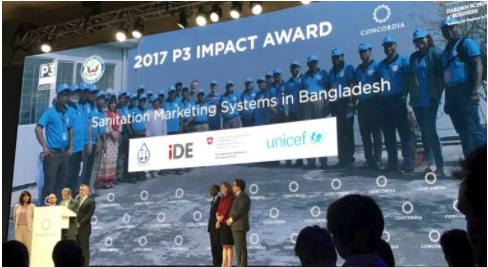
The Sanitation Marketing Systems in Bangladesh (SanMarkS) has recently been awarded the prestigious P3 Impact Award for its public-private partnership (P3) approach.
SanMarkS applies Sanitation Marketing, Market Systems Thinking, and Human Centered Design to reach 450,000 poor and disadvantaged rural people by 2019 with better health and wellbeing through improved sanitation. The project began in November 2015 and is jointly funded by SDC and UNICEF and implemented by iDE-Bangladesh.
SanMarkS aims to build household demand and private sector supply of hygienic, affordable latrines by facilitating collaboration between national level manufacturers of latrine parts, local level entrepreneurs, municipalities and the Department of Public Health Engineering. The project promotes the integration of the private sector as a key stakeholder into the existing public and civil society platforms in the sanitation sector in rural areas.
SanMarkS builds the capacity of local latrine producers, their knowledge and technical know-how as well as market promotion strategies to increase their client base.
As a result, (341) local entrepreneurs are now organized. They have formed business associations (sanitary business associations SBA) to leverage their collective skills and buying power. This enables remote customers in villages to access hygienic latrines at affordable prices, while latrine producers who are a part of a business association have seen their sales of hygienic latrines almost double. The local government subsidies to help poor households build latrines are now used more effectively, as the local latrine producers deliver cheaper and more hygienic latrines. The sanitary business associations enforce quality standards among the members and have begun engaging with the local government to create national quality standards for improved latrines. National manufacturers are able to reach new customers who were inaccessible before due to the high cost and logistical challenges of marketing in remote areas. By engaging with a single point of contact from a business association representing several entrepreneurs, companies now have a simple and cost-effective way to distribute their products in sparsely populated rural regions. In this way, SanMarkS builds capacity of the private sector actors to develop products, messages and marketing techniques that will reach specific types of consumers based on household income, assets, lifestyles and other characteristics resulting in better health condi¬tions and well-being.
Interested to learn more?
 14 Mar 2018 Approved ProjectsE-Saving club Akiba MexicoThe aim of this project is to digitalise the loan origination process of the partner financial institutions Pretmex and offer Akiba´s own digital MicroCreditLine product (MCL). Online lending is a relatively new concept in Mexico with only few providers covering mainly the consumer lending sector and at usury rates. The MCL product specifically targets the funding need of low-income employees who often have to borrow at very high costs and unreasonable conditions when facing short-term financial emergencies. >> more
J.Wipf Guardian Life Insurance Limited (GLIL) BangladeshThe SCBF support of one year is meant to enhance the partners´ GLIL and BRAC capacities to develop and develop microinsurance products, one preferably with savings-linked component, offered to one or more segments of BRAC´s diverse and vast membership (it has the largest microfinance programme in the world). >> more
WWB Lead Foundation Egypt (automation)The main objective of the project is to transform Lead´s microinsurance operations to make them digital and automated, through the design and development of a fraud robot able to detect fraudulent insurance pay-out claims. Upon project completion, the insurance process automation solution should enable Lead to expand its client base from currently 180,000 to 318,000 clients in 2019 and manage high scale operations without adding more staff. >> more
WWB Lead Foundation Egypt (family)Lead Foundation aims to develop at least one family health insurance product and roll it out to its currently over 200,000 clients and their families, expanding its beneficiary base to 950,000 by end of 2019, and thus enhancing their resilience in face of unexpected health crises and hospital emergencies. >> more
Venture South Biashara na Fedha TanzaniaBiashara na Fedha and Simusolar aim to develop, test and scale up customised loan products designed to finance the acquisition of solar-powered water pumps by smallholder farmers around Lake Victoria, reaching out to 1,000 farmers by 8.2019, and intending to reach 17,000 farmers three years after the support. The customisation will take into account the crop cycles and smallholder farmer credit profiles. >> more
Symbiotics MicroCred DRCThe purpose of the product up-scaling support is to upgrade the existing loan products of MicroCred, esp. the roll-out of the local currency loan product in Congolese Francs (CDF). Secondly, the support will be focused on developing and launching deposit products, and providing to clients financial education on the spectrum of services (savings and loans). This is expected to lead to outreach of 7,500 CDF clients (2,000 new) and 17,000 deposit clients by end of 2018. >> more
Habitat Banco Solidario EcuadorBanco Solidario plans to redesign its existing housing microfinance product and adjust mobile tools to support credit officers in selling the products, improving the living conditions of at least 1,794 clients and their families at project end and 4,000 clients by December 2021. The technical assistance will also trigger a capital investment of USD 11 mil. for home improvements. >> more
Habitat COAC JA EcuadorCOAC JA (Calculadora de Ahorro y Credito – Jardin Azuayo) aims to redesign its existing housing microfinance product and introduce a new micro-mortgage product, improving the living conditions of at least 2,000 / 500 clients and their families with the housing microloan and mortgage product (respectively) at project end and 6,000 / 1,200 clients by December 2021. Upon project completion, app. USD 8 mil. capital for home improvements will be mobilised. >> more
Habitat LOMC Sri LankaWith this technical assistance LOMC Sri Lanka aims to expand its housing portfolio by reaching out to new customer segments and build the capacity of product management within the institution. It is expected that by end of the project, 7,200 clients with families will have access to improved financial products and services for home improvement and app. USD 14 mil. will be invested in home improvements. >> more
Habitat LOLC CambodiaOver 18-month period LOLC intends to introduce a new micro mortgage product and grow and manage its housing portfolio by gaining inputs on product level strategy and product management principles. Upon project completion, 2,520 families/clients will have access to improved financial products and services for home improvements/construction and approximately USD 8.4 mil. capital will be invested in home improvements. >> more
BFC NUCAFE UgandaNUCAFE is a coffee farmer organization with a total of 200 member organizations, which translates into over 1 million individual coffee farmers. This financial education campaign is designed to raise awareness and understanding of agricultural insurance (Relative Evapotranspiration Index Drought Insurance) for smallholder farmers and their general financial education to improve their financial capacities and change their attitude towards formal financial services. By project end, 70,000 smallholder coffee farmers (including 17,000 young farmers and 17,000 female farmers) will be able to better manage business activities as well as understand the importance of savings and risk management tools (including agricultural insurance). >> more
 14 Mar 2018
Completed Projects
WWB Al Amana MoroccoAl Amana redesigned and rebranded its existing health insurance product to “Tayssir Al Amana” and developed a strong marketing campaign leading to an increase in uptake and usage of the product. That, in concert with the supportive management systems for product monitoring and evaluation resulted in a substantial growth of Al Amana´s microinsurance portfolio from 2013 through 2016. >>
more
“Rkia, client of Al Amana in Morocco, who makes her living through embroidery and sewing“ ©Courtesy of Al Amana
Positive Planet Al Barid Bank Morocco
Al Barid Bank intended to develop a new payment agent network to deliver social benefits (G2P – government to people) to rural areas in Morocco through adapting its existing mobile banking platform (developed with the SCBF support 2013-01). However, this switch from cash-based to mobile-based distribution system was thwarted by changes in regulatory framework. >>
more
Alliance MyanmarAlliance for Microfinance and Myanmar successfully developed, piloted and rolled out a successful Small Enterprise loan product, leading to an uptake of 10,713 loans by project end and aiding the successful development of the institution in the past two years. The SE loans now comprise 41% of the total loan portfolio and yielded 40% income for AMFIM in 2017. >>
more
Alliance MyanmarAMFIM succeeded in designing a system where financial education is an integrated part of its business model and does not depend on the access to external funding after the initial phase of development. AMFIN adapted the content of the programme to serve the varying needs of its group loan clients and small enterprise loan clients. At project end, all group loan clients (over 45,000) have been trained with the presentation guide and at least 20,000 clients have watched the video at disbursement. For small enterprise loans, at least 1,500 clients have watched the disbursement video and 225 took part in one or more financial education training sessions. >>
more
KiWi MexicoAs part of the financial education campaign, KiWi Mexico designed a variety of tools and materials, such as user manuals, videos on YouTube, FAQ, and new scripts explaining how the digital platform for micro-merchants works (see reference to 2016-01) and how it contributes to better financial control, credit-worthiness and sales. >>
more
“Rkia, client of Al Amana in Morocco, who makes her living through embroidery and sewing“ ©Courtesy of Al Amana
 13 Mar 2018 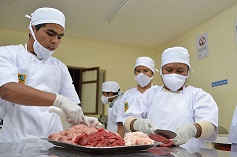 From 2006 to 2017, the SDC contributed to the technical and
vocational training in Bolivia. The program focused on the objective of improved
access, relevance and quality of the vocational technical education and
training. It offered trainees and students of vulnerable populations, in
particular young people and women from rural and peri-urban areas, access to
agricultural, industrial and service oriented vocational skills courses.
In addition, the program targeted producers and workers who
require additional training to improve their production and services.
Especially in the beginning, most interventions took place in rural areas, but
later various actions were also implemented in peri-urban areas.
A total of 143 training centres were strengthened, 25’000
people graduated (54% women) and 77% of them were integrated into the labour
market. The Program also had a national scope by supporting to the
Plurinational System of Competence Certification (SPCC) of the Ministry of
Education, which deconcentrated its services into 5 departments, developed more
than 110 occupational standards and certified 36’000 workers.
Further information about the project Documentation and products of the program are available on http://www.formaciontecnicabolivia.org
(Spanish website). See the project's entry in our Portfolio Database here.  13 Mar 2018 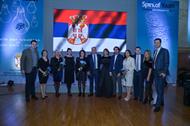 As first country in the region, Serbia has recently adopted a new Law on Dual Education. Inter alia, new profiles that are in line with European standards will be cerated in secondary schools .
The SDC has already supported the development of a dual education program in the wood industry in Užice, through its Private Sector Development program.
The SDC will remain committed to support the Government of Serbia to successfully implement the adopted Law on Dual Education through a new project with the Ministry of Education, Science and Technological Development. The project will include support to the regulatory framework, the introduction of the Monitoring & Evaluation and law promotion with continued advisory backstopping... [more].
Further information about the project See the project's Portfolio Database entry here, visit the project's own website or watch a video about the project. More information about the collaboration of Austria, Germany and Switzerland to support dual VET in Serbia is provided here and here.
The photo is from the closing academy of the Education Caravan "The Spirit of Youth". Click here to enlarge it.  06 Mar 2018 The SDC project "Employment Fund" in Nepal and its innovative approach have recently been featured in the Swiss Geman newspaper Tages-Anzeiger. You can read the article here (only available in German). According to a Worldbank survey, six month after the training more than 75% of the programme's participants have a salary which lifts them above the national poverty line.
Further information about the project
See the project's entry in our Portfolio Database here or visit the project's website. The project also has special focus on gender issues in VSD. Read more about it here or watch this video.
 21 Dec 2017 Swisscontact produced a video about the Skills for jobs (S4J) project in Albania.
Further information about the project This event is targeted at experienced professionals involved in designing, implementing and facilitating economic development processes and building team capacity. The specific emphasis will be on emergence and adaptation of meso organisations and their central role in the TED process. It will further explore the importance of the social and cultural environment on the effectiveness and competitiveness of a territorial economy. It will discuss the role of development programmes and their role in territorial development processes. >> more
National and international speakers and exhibitors will explore technological innovation for small-scale agriculture, how to promote it and what new technologies are appropriate for the Bolivian context. >> more The course is designed for organizations that support the development of microinsurance. The target audience includes people who are considering establishing microinsurance schemes, staff of microinsurance companies, established insurance companies that are considering entering the microinsurance market, regulators, policy makers and those working in financial inclusion. >> moreDo you want to register to our next Forum or have a look at the programme? >> moreThe CAS in
Sustainable Finance covers the areas of Sustainable Investing, Sustainable
Banking and Insurance, Microfinance, Microinsurance, and Emerging Market
Finance. The courses combine academic training and research with current
business practices, while promoting technical, methodological and social
skills.
The program targets individuals who wish to
acquire sound theoretical and practical knowledge in Sustainable Finance and
related topics.
>> more
Africa’s largest conference and exhibition on technology supported learning, training and skills development. eLearning Africa is a network of experts, professionals and investors, committed to the future of education in Africa.
The conference is being organised by ICWE GmbH and the Rwanda Convention Bureau under the patronage of the Rwandan Government... [more] The event aims to discuss how the academic fields of Science, Technology, Engineering and Math
(STEM) can contribute to the empowerment of youth - with a special focus on young women and girls - by
eliminating the gender gap in education and skill-development, and by providing equal employment
opportunities, as a strategy to reduce overall inequalities, eradicate poverty and promote peace and
prosperity for all... [ more]. Mobile Learning Week is UNESCO’s flagship ICT in education conference. Mobile Learning Week 2018 is being organized in partnership with the International Telecommunication Union (ITU), the United Nations specialized agency for ICT. The event will be held from 26 to 30 March at UNESCO Headquarters in Paris.
The 2018 event will be organized under the theme “Skills for a connected world”. Participants will exchange knowledge about the ways governments and other stakeholders can define and achieve the skills-related targets specified by Sustainable Development Goal 4 (SDG 4)... [ more] In the run-up to the VPET congress, on June 6, the SDC holds its biennial international VSD event. The event is a great possibility to learn more about the SDC's VSD strategy and its projects. In addition to the key notes and visits of companies that provide VET, you will also have plenty of time to network with colleagues from all over the world. More than 70 experts, implementers, SDC staffers and ministers from 30 different countries participated in the last event... [ more] The Center for the Economics and Managment of Education and Training Systems offers the Summer Institute 2018: Economic Policy Development Research Program for Education Reform Leaders Application Deadline is 1st of April 2018. For more Information, see the Flyer here.
3rd International
Congress on VPET in 2018
6 - 8 June
2018.
VPET specialists from over 80 nations took part in the
last edition of the congress and shared their knowledge over three days.
Memories we do not want to miss! You can find them in the chapter review on the official
congress website.
The heading of the next congress will be "Careers through Skills". Click here for more info. Follow the congress on Twitter and Facebook and spread the news about #VPET18.
 16 Mar 2018 From 13 to 22 March, the e+i and DDLG Networks jointly hosted an e-consultation on Local Economic Development (LED). After three webinars in English, French and Spanish, Maja Rüegg und Marcus Jenal facilitated an e-discussion. The videos of the webinars are now published on the e+i Shareweb, a synthesis paper of the e-discussion will follow soon... [more on the PSD eDiscussion page]  16 Mar 2018 From 13 to 22 March, the e+i and DDLG Networks jointly hosted an e-consultation on Local Economic Development (LED). After three webinars in English, French and Spanish, Maja Rüegg und Marcus Jenal facilitated an e-discussion. The videos of the webinars are now published on the e+i Shareweb, a synthesis paper of the e-discussion will follow soon... [more on the PSD eDiscussion page]  03 Jan 2018 Between Christmas and New Year's Eve we made the online version our introduction "Understanding and analysing VET systems" - one of our key documents - more user friendly.
We hope the online version of the introduction meets your learning habits. If not have a look at the videos on YouTube. You will find the links at the end of the chapters.
Check out the online introduction here. Alexandra Miehlbradt, Hans Posthumus-DCED, SDC, Australian Aid
The topics are: - Gathering Information from Businesses - Using Technology in Monitoring and Results Measurement - Monitoring - Using Multipliers to Estimate Impact - Assessing Systemic Change Dr Shawn Cunningham, Marcus Jenal-Beam Exchange The primary aim of this research project was to find a conceptually sound definition of systemic change. To do so, it was essential to gain a better understanding of how economies change. >> more Marcus Jenal, Mollie Liesner-Beam Exchange Attribution is the establishment of a causal link between (parts of) an observed change and a specific intervention. Attribution is a key requirement of any monitoring and results measurement (MRM) and evaluation activity. Donors require programmes to show whether, and to what extent, the results they are reporting are caused by their interventions. There are many opinions on how to attribute changes to interventions. This is particularly true for interventions in complex systems such as markets. Some practitioners and authors say... >>more DCED Development organisations are becoming increasingly systematic and strategic in engaging the private sector as an equal partner across their work, through a variety of formats. As such, private sector engagement represents a shift away from bilateral work with developing country governments, but also differs from traditional, transactional ways of working with business. This briefing note is about innovative programming and organisational changes that pioneering agencies are implementing, to facilitate this shift DCED This summary is based on a 34-page DCED report published in 2017 which
documents how development organisations are changing policies and procedures,
staff roles and team structures, as well as staff capacity and incentives to
enable private sector engagement. Md. Rubaiyath Sarwar, Luis E. Osorio-Cortes-Beam Exchange This paper explores how to
build high-performing teams for programmes that use the market systems
Development (MSD) approach: It is based on research commissioned by the BEAM
Exchange in 2017. The research set out to identify the core competencies
of high-performing MSD teams and the practices that team leaders adopt to
recruit and build such teams. Microfinance Gateway On the ocassion of International Women's Day 2018 the Microfinance Gateway has put togehter a guide to their most recent library resources on
digital financial services for women, policies for promoting women's financial
inclusion, reviews of impact evaluations on women's empowerment initiatives,
and client research on what women really want from their financial service
providers. Nesta Which skills will be required on the labour market in the year 2030? This study risks a forecast for the USA and UK... [ more] Cedefop This research paper is the first in a series produced as part of the Cedefop project The changing nature and role of VET (2016-18). The aim of the paper is to review scholarly attempts to define or explain vocational education and training and to develop a theoretical model to analyse national definitions or conceptions of VET and how they have changed over time... [ more] Cedefop This research paper is the second in a series produced as part of the Cedefop project The changing nature and role of VET (2016-18). It discusses national definitions and conceptions of vocational education and training (VET) in European Union Member States, Iceland and Norway and describes how these have changed over the past two decades... [more] CEMETS Are you in need of evidence-based arguments for dual VET? This CEMETS blog post provides some... [ more] UNESCO UNEVOC The 32nd issue of the UNEVOC Bulletin focuses on ‘ICTs in TVET’ and presents a selection of UNESCO-UNEVOC’s activities that have contributed in this them atic area and our other engagements during the last quarter of 2017.
Please note that this edition of the Bulletin is available in all six UN languages on the UNEVOC Website: http://www.unevoc.unesco.org/bulletin/. World Bank People tend to associate the cost of a job with the salaries and benefits paid to a worker. But for that worker to be able to do something useful, he needs to have the equipment and presumably a place where to operate. The business hiring the worker most likely will have to buy insurance and pay for different types of permits, plus basic services such as water and ... [ more] Cedefop The sixth Cedefop national qualifications framework (NQF) monitoring report confirms that NQFs play a key role in the European qualifications framework (EQF) implementation and in improving transparency and comparability of qualifications nationally and internationally. The 39 countries monitored (28 EU Member States, Albania, Bosnia and Herzegovina, the former Yugoslav Republic of Macedonia, Iceland, Liechtenstein, Kosovo, Montenegro, Norway, Serbia, Switzerland and Turkey) are developing and implementing 43 national qualifications frameworks... [ more] CEMETS National Qualifications Frameworks (NQFs) are a very common type of VET reform. The blog post very briefly discusses some of the evidence—or lack thereof—for their hoped-for benefits and a few reasons they might help, or fail to do so... [ more] |
